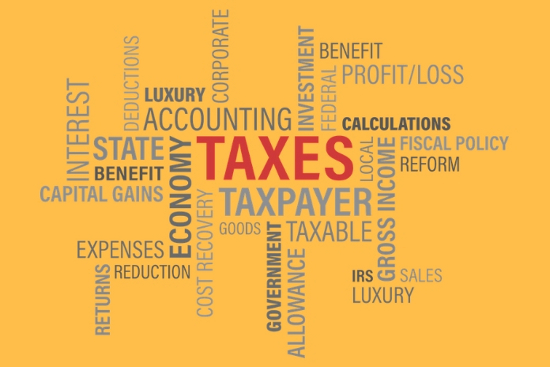Of all the debt you can owe, owing the federal government is often the scariest; however, while no one wants to find him or herself in the federal government’s black books (of debt), one may fall a victim of IRS tax debt relief scams if not careful enough.
Thousands of unsuspecting people have lost their hard-earned money and personal data to different tax scams with scammers using email, telephone numbers or even social media to reach out to their victims, which may be individuals or businesses.


In this article, we’ll learn the different tricks IRS tax debt relief scammers use and how to avoid falling for them.
1. Knowing and Avoiding E-Mail Scams
To avoid being scammed via mail, it’s expedient that one familiarizes oneself with the methods through which the IRS actually initiates contact with taxpayers. This is done via mail from the US Postal Service. In some special cases, the individual might make a phone call to the taxpayer or even approach their home or business locations. Such special cases may include:
- Overdue taxes
- Criminal investigation
- Auditing
The IRS always makes these contacts after a series of letters or notices that are attached to a previously sent e-mail.
With these in mind, you’ll be able to identify when the real IRS contacts you or when scammers are on the prowl.
2. Knowing and Avoiding Telephone Scams
These days, criminals can impersonate the IRS and they often contact taxpayers directly. They sound persuasive in their claims to be employees of the IRS with made-up ID badge numbers and names. Most times they threaten taxpayers – an exact opposite of how the IRS would legitimately handle such issues.
You may not be able to prevent these scammers stumbling upon your business phone number, but you can avoid getting scammed out of your money and important information if you understand what the IRS won’t do over the phone.
- The IRS will not require your debit card data, wire transfer or even gift cards. Taxpayers often pay their taxes to the U.S. Treasury or other online options as can be seen on IRS Payments.
If the IRS calls you, there will not be any request for instant tax payment. Things are done in order; beginning with a mailed letter acknowledging what you owe. You can verify your debt or question it, but that’s only when you know your rights as a taxpayer.
- The IRS doesn’t threaten taxpayers who owe. Threats like the use of law enforcement or revoking of a taxpayer’s immigration status or license are common tricks employed by scammers to lure victims into making payments.
3. Visits From the IRS are Official and Sometimes Unannounced
As pertains to an investigation or audit, IRS employees might visit your home or business without any prior notification; however, everything is kept official. You will receive an email regarding your owed taxes in case of any federal debt and will be advised to make full payment, although via a range of options.
Be sure to let the officials provide proof of their credentials. Endeavor to peruse their HSPD-12 card. Also, request their employment verification phone number, which is toll free.
IRS agents who attempt to collect taxes will only advise taxpayers to make payments to the US Treasury only. The IRS may notify taxpayers by mail or phone call to set up meetings on audits. Know that criminal investigations are done by law enforcement and there will be no demand for financial commitment whatsoever from you.
4. Be Aware Of Phishing, Malware and Email Scams
As technologies grow and help businesses to expand, scammers have found several loopholes and taken advantage of them. One of such is impersonating federal government agencies like the IRS and contacting taxpayers, requesting immediate payment of their taxes and making threats of various kinds.
Scammers often use phishing when tricking business owners or taxpayers into thinking that the IRS is contacting them. In these scam messages, taxpayers might be asked a range of questions just to get the victim’s tax information and payment data.
Note that the IRS won’t discuss tax refunds and debts via text message, email or any social media platform.
Sometimes, certain overdue taxes are assigned to private debt collection agencies (PCA). Here is all you should know about the program to help you avoid scams. There are usually four PCAs, each of which handles taxpayers’ overdue debt. If the IRS wants you to deal with any of these organizations, you’ll be informed via U.S. mail. The organization will then contact you in writing to affirm that the IRS wants you to deal directly with them.
Aside from these organizations, the IRS will never assign any other private organization to handle taxes that are overdue. Also, your account will never be assigned to more than one of the four designated organizations. These PCAs have representatives; knowing or familiarizing yourself with who they are will help you identify an impostor. Legitimate PCA reps will not request your deposit card details, but will require that you make your payments to the U.S. Treasury; nor will they threaten you with law enforcement.
Also read: irs offer in compromise pre-qualifier
Help The Government Fight These Scams By Reporting Them
Whenever you spot tax debt relief scams, you should always alert the right authorities for immediate action and additional security. You can report impersonation scams to Treasury Inspector General for Tax Administration via the IRS scam-reporting page.
Any unwanted email that claims to be in sync with the IRS or any IRS-related body such as the Electronic Federal Tax Payment System should be expeditiously reported to the IRS. Phone call scams should be reported to the Federal Trade Commission (FTC) through the FTC Complaint Assistant page. When making notes on this page, be sure to add “IRS Telephone Scam.”
These tips can help you avoid scammers getting hold of your personal information or tricking you into paying illegitimate funds to phony bodies.

























